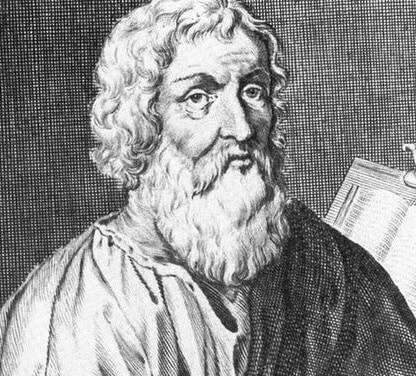Overview
Pursuing a master’s in exercise science is a strategic way to advance your career in health, fitness, and human performance. This graduate degree provides a strong foundation in physiology, biomechanics, and program design—preparing you to support individuals and communities in achieving sustainable wellness. Whether you’re interested in coaching, rehabilitation, or research, a master’s in exercise science opens doors across the growing health and fitness industry.
Have you seen this quote before? “If we could give every individual the right amount of nourishment and exercise, not too little and not too much, we would have found the safest way to health.”
Do you know who said it? It sounds like a comment from the U.S. surgeon general, or from one of the fitness experts on reality television. Or maybe it’s straight out of a report from the Centers for Disease Control and Prevention?

It’s actually from Hippocrates, who died in 370 B.C. It might reasonably be considered one of the earliest references to what we call exercise science today. The College Board, in its overview of the field, says the specialty of exercise science has its roots “in the physical-culture movement of the 1800s. The goal was to improve the health of the working class through dance and sports.”
A major step forward for the field came in the 1960s, with the publication of a paper entitled “Physical education: an academic discipline,” by the University of California, Berkeley, Professor Franklin Henry. His paper, along with the conclusions reached by academics at many Big 10 universities, sparked an upgrade in educational programs related to fitness, physical education, and, ultimately, the field we now call exercise science. According to a paper published by University of Washington professor Jack W. Berryman in 2010:
Curriculum reform, higher admission standards, departmental reorganization, and an emphasis on research were examples. More importantly, though, the call for more rigorous programs led to a search for a legitimate field of study. How could physical education become an academic discipline? Agreeing that they really had no field of scientific study comparable to others at major universities, physical educators began to focus on the study of exercise and sport, and departments with titles like exercise science, human movement, and kinesiology were born.

Today, the American College of Sports Medicine defines exercise science as “the study of movement and the associated functional responses and adaptations. In this context, an exercise scientist must understand the scientific basis underlying exercise-induced physiological responses.” Career options range from aerobics instructor to exercise physiologist to fitness center director to recreation therapist.
If you have a background in exercise science, you are “skilled in evaluating health behaviors and risk factors, conducting fitness assessments, writing appropriate exercise prescriptions, and motivating individuals to modify negative health habits,” according to the Commission on Accreditation of Allied Health Education Programs. You’re likely equipped to work in a university, corporate, commercial, or community settings.
Interested in diving into the exercise science world? Check out our webinar hosted by program director Dr. Theresa Miyashita, that goes over everything you need to know about our Master’s in Applied Exercise Science.
Concordia University Chicago has been educating students for over 150 years and when you enroll in our online programs you earn the same campus quality degree. Ready to advance your career in health and fitness with a degree in Exercise Science? Contact one of our Admissions Advisors to learn more.
Request Program Information
Related Articles
How Fast Do PhD Exercise Science Graduates Find Jobs—And What Do They Earn?
Completing a PhD in Exercise Science is a major achievement, [...]
Is a Master’s Required for the ACSM Certification Exam?
Why a Master’s Degree Matters for Advanced Certifications A master’s [...]
Will I Make Enough to Pay Off This Degree? Here’s the Real Math
An honest look at the likely earnings, job paths, costs [...]
